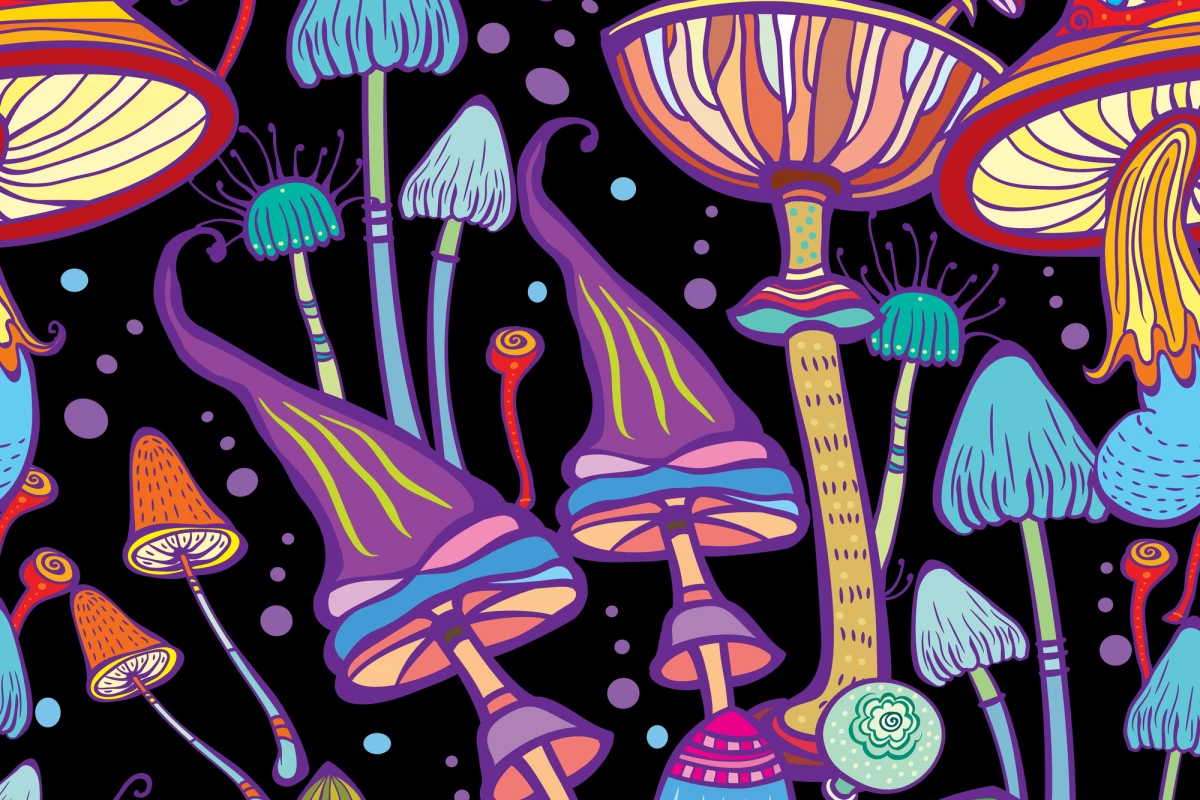A first-of-its-kind exploratory study, led by researchers from Yale School of Medicine, has found a single dose of the psychedelic psilocybin can reduce migraine frequency by 50 percent for a least two weeks. The preliminary trial was small, with follow-up work necessary to validate the results, but the promising findings suggest great potential for psychedelics to treat migraines and cluster headaches.
Back in the 1960s, during the height of the first wave of psychedelic science, one of the more compelling research avenues was the potential for drugs such as LSD and psilocybin to treat headaches. Initial studies at the time seemed to suggest psychedelic drugs that activate 5-hydroxytryptamine 2A (5-HT2A) receptors could significantly reduce headache burden in chronic migraine sufferers.
Of course, all this research froze by the early 1970s as psychedelic drugs were criminalized and rendered taboo. It wasn’t really until the early years of the 21st century that the research restarted, and most modern psychedelic research has primarily focused on the drugs as adjuncts to psychotherapy, targeting conditions such as depression, addiction and PTSD.
Although official psychedelic investigations were in a state of deep freeze, out in the real world people continued to experiment with these drugs, self-treating for a number of conditions. Several surveys of these real-world applications revealed an abundance of cluster headache and migraine patients experimenting with LSD and psilocybin.
A new study, published in the journal Neurotherapeutics, is offering the first double-blind, placebo-controlled, cross-over study on the effects of a moderate psilocybin dose on migraine frequency and severity. The research is only preliminary and small but its results are deeply encouraging.
Ten migraine sufferers were recruited for the trial. Each subject completed two sessions, one with a placebo and one with a moderate psilocybin dose. Headache diaries were used to track headache frequency and severity in the two weeks leading up to, and following, each experimental session.
“Compared to placebo, a single administration of psilocybin reduced migraine frequency by about half over the two weeks measured,” explains corresponding author on the new study Emmanuelle Schindler, in an email to New Atlas. ”In addition, when migraine attacks did occur in those two weeks, pain intensity and functional impairment during attacks were reduced by approximately 30 percent each.”
Perhaps the most intriguing finding from this small study was the lack of any correlation between the subjective strength of the psychedelic experience and the therapeutic effect. Prior trials using psilocybin to treat depression or addiction have suggested the overwhelming magnitude of a psychedelic experience seems to be fundamentally entwined with its therapeutic efficacy. So essentially, the more powerful the experience the better the result.
But unexpectedly, this migraine/psilocybin trial did not detect that association. In fact, those subjects reporting the highest scores on a self-reported altered state of consciousness scale showed some of the smaller reductions in migraine burden.
What this intriguingly suggests is that, in the case of psilocybin for migraine, it may be possible to separate out the drug's psychotropic effects from its therapeutic effects. This could be achieved either by exploring microdoses and sub-hallucinogenic doses, or even homing in on the mechanism by which the drug is helping prevent migraines and finding a new way to pharmacologically target it.
“This is definitely a finding we’re interested in exploring further,” says Schindler. “If these outcomes are confirmed to be independent, it suggests that the migraine-suppressing effects do not involve the same systems that cause the acute changes in sensation and perception. Psilocybin has some chemical and pharmacological similarities to existing migraine medications that are not psychedelic, so we plan to investigate its therapeutic effect in this context.”
It is important to understand the limitations of these new findings. This is a small exploratory study, designed to uncover potential signals that are worthy of more robust investigation. The two-week follow up, for example, offers no indication as to the long-term efficacy of this kind of therapy. This is something Schindler suggests will be closely studied in future research.
Moving forward, Schindler is cautious not to overstate her team’s findings but she does say the results are exciting. Not only does this research offer signals psychedelic compounds could meaningfully help those suffering from debilitating migraines, but the study offers novel insights into the still-unexplained physiological causes of chronic headache disorders.
Lots of questions still need to be resolved before any kind of clinical treatment can come from this research but Schindler and colleagues are already working on the next steps, with longer follow-up periods and greater focus on different dose effects.
“I have a new migraine study starting soon and I’m also currently studying post-concussion headache, which often resembles migraine,” adds Schindler. “I’m not aware of any other groups investigating psilocybin or related compounds in migraine, though cluster headache is currently being studied, not only by my group, but also Swiss and Danish researchers.”
The new study was published in the journal Neurotherapeutics.




